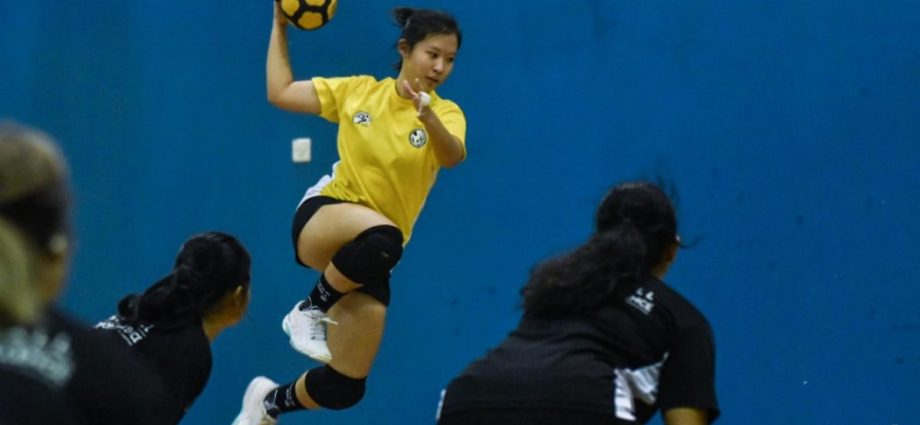
SINGAPORE: In a secondary school hall on a cool Wednesday evening, the world No 1 women’s tchoukball team is being put through the paces.
Half an hour before training begins, the chatter of voices echoes off the walls. Court shoes are laced up, knee guards are slipped on, warm-ups are under way.
Given that they only have two venues islandwide where they can train for free, court time is limited and valuable. Every minute counts.
“Players know that with every time we are on court, we have to maximise it,” team captain Irene Tan told CNA. “We share the court space with eight different squads, so there has to be a schedule with the different timings.”
But this is nothing new. This is a team and a sport used to making the most of what little they have.
“The heart and the passion are definitely very important,” said Tan’s team-mate Angie Ng. “The little resources have helped us to not take things for granted. We cherish every chance we are given.”
Their coaches are volunteers, the athletes pay for their own jerseys as well as to play at tournaments abroad, and the association members fork out their own money to defray costs.
Sponsorship helps keep things going, some take on ad-hoc coaching gigs or even repair equipment in their leisure time in order to raise funds, and parents of school-going players also chip in to help.
Run by volunteers, the Tchoukball Association of Singapore (TBAS) is not a national sports association. It receives no government funding.
Yet on Jan 1, the women’s national team became world No 1 for the first time, after pipping Chinese Taipei to the top spot in the International Tchoukball Federation’s world rankings. Switzerland are currently third.
This follows their victory over Chinese Taipei in the 9th Asia Pacific Tchoukball Championships in August last year.
“After that victory last year, the team worked hard and constantly did not let their guard down,” said Tan. “I’m still in disbelief (at being number one).”
Their male counterparts are third in the world after Chinese Taipei and Italy.
“The secret ingredient is our passion for the sport,” Tan said. “Without the help of the association, the coaches and (TBAS president) Delane’s efforts, it wouldn’t have been possible (for us) to get where we are today.
“We have developed a mindset to work with what we have, or even find other resources within our means to make things work for us.”

